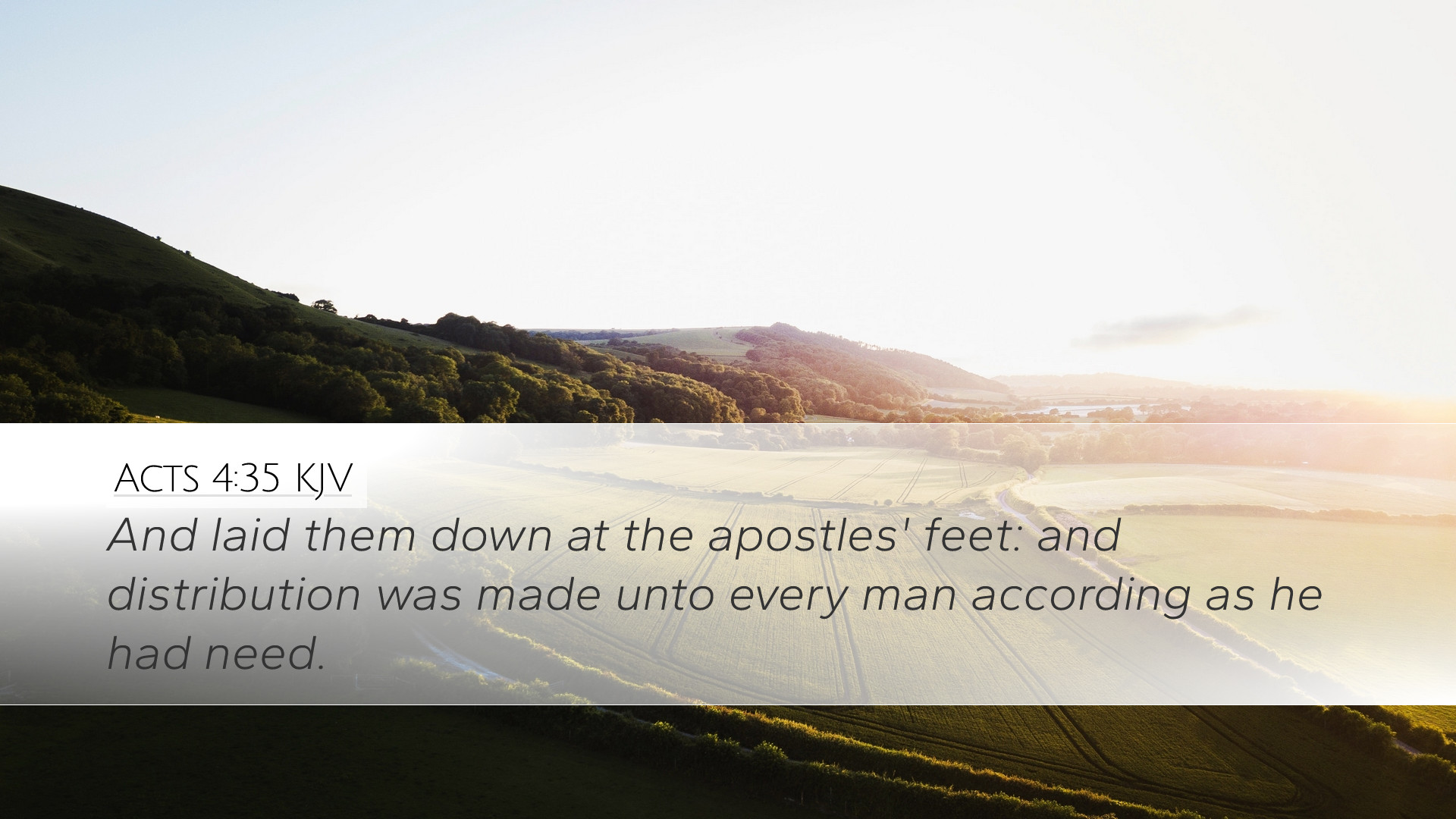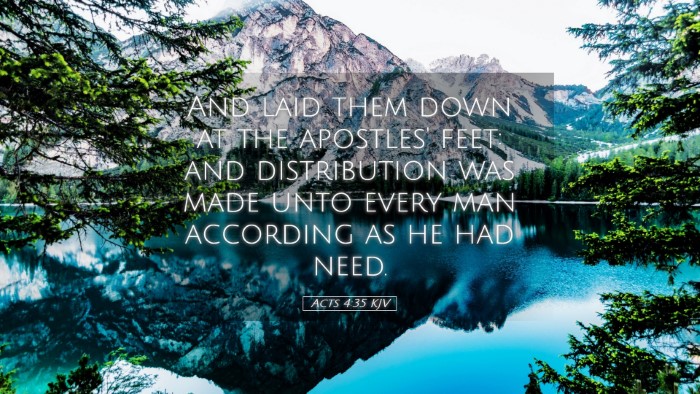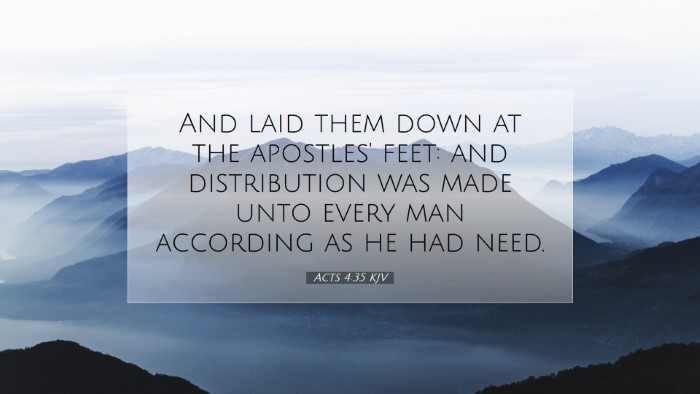Acts 4:35 Commentary
Acts 4:35 states: "And laid them down at the apostles' feet: and distribution was made unto every man according as he had need." This verse appears amidst a larger narrative detailing the early church's communal living and sharing of resources. Several public domain commentaries provide rich insights into this passage, which can serve as valuable nuggets for pastors, theologians, students, and Bible scholars alike.
Context and Background
The context of Acts 4 reveals the precarious situation of the apostles following the resurrection and ascension of Jesus Christ. In these early days, the followers of Christ were characterized by their unity, support for one another, and a dedication to spreading the gospel.
- Unity of Believers: Matthew Henry comments that the believers were "of one heart and of one soul," highlighting the incredible bond that existed among them. The act of laying down their possessions at the apostles' feet exemplified their selflessness and commitment to the community.
- Role of the Apostles: Albert Barnes notes that the apostles were not merely leaders but also custodians of the collective wealth, ensuring that the needs of the congregation were met. Their authority was not one of lordship, but of stewardship.
- The Act of Giving: Adam Clarke emphasizes that the laying down of possessions was an act of worship and submission to God. It was a voluntary gesture signifying that all they possessed belonged to the Lord first and was to be managed according to His will through the church leaders.
Theological Implications
This verse raises several important theological themes:
- Community and Sharing: The early church's practices serve as a model for contemporary Christian communal living. The radical redistribution of wealth illustrated in Acts 4:35 is a challenge for modern Christians to consider the needs of others seriously.
- Divine Provision: By ensuring that distribution was made according to need, the passage highlights God's providential care for His people. Each person's need is known by God and met through the faithfulness of the community's generosity.
- Accountability in Leadership: The laying down of resources at the apostles' feet also implies a system of accountability within the church. The apostles had the responsibility to manage these resources wisely, showcasing the importance of integrity and transparency in church leadership.
Practical Applications
For pastors and church leaders, Acts 4:35 offers practical lessons on stewardship and generosity:
- Encouraging Generosity: Leaders should foster an environment that promotes radical generosity, urging church members to recognize their resources as gifts from God to be shared for the good of others.
- Establishing Systems of Support: Churches should consider ways to implement systems that meet community needs, possibly establishing funds or initiatives that support those in crisis.
- Teaching on Stewardship: Educational programs focusing on biblical stewardship can help congregants understand the theological basis for sharing and supporting one another.
Conclusion
Acts 4:35 encapsulates a vital principle of early Christian community—the responsibility of believers to care for one another. By examining this verse through the insights of respected public domain commentaries, we glean meaningful applications for today's church. The necessity of uniting in love and support for one another remains a timeless call to action for all followers of Christ.


